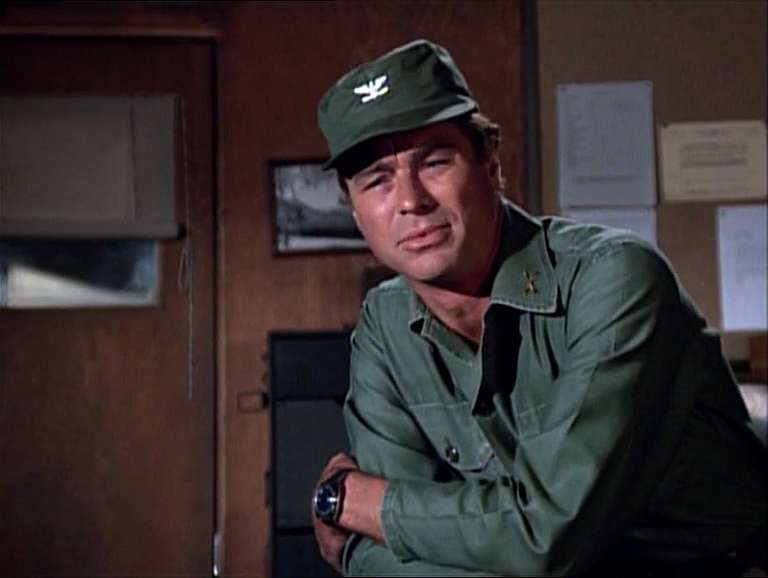Sometimes we learn best from counter examples. Col. Flagg was an recurring character on M*A*S*H. He was a CID man with Army Intelligence, and spent much of his time bloviating about his suspicions about everyone while threatening to kill people for fun.
Flagg seemed to have taken every piece of tactical advice he was ever given to absolute extreme. It leads him apply his most aggressive techniques – like threats of torture, or attempts at bribery – to every situation he encounters.
Consultants get a lot of good tactical advice about how to address our clients and our work. But if we take things too far we are only slightly less clueless than Flagg.
Col. Flagg’s Over-Generalization
Probably the best example of Flagg’s constant misapplication of techniques by generalizing their use is in The Abduction of Margret Houlihan from season 5. Chief Nurse Margret Houlihan hurries off late at night to deliver a baby in a nearby village, telling only the guard, Kilnger, who promptly goes to bed. When no one can find her in the morning, Potter calls for help searching for her. The army’s answer is to send Col. Flagg. He arrives, dressed as Mussolini, claiming to look like a Chinese double agent (if that agent chose the same get up), and proceeds to request the provisioning of several items clearly planning to torture someone.
Flagg spends the day wondering around, threatening everyone he talks with, trying to get information about Houlihan. He never finds anything of use, but does get in a number of good one-liners.
Finally Houlihan, who was never in any danger, returns to camp unaided. Flagg declares victory, throws himself out a window – so know one will see him leave – and breaks his leg.
Anyone who had been a consultant long enough can find parallels between Flagg’s useless bloviating, and consultants who try to address every client project as interchangeable.
Col. Flagg Consulting
Good advice often is context specific – you need to know when and how to use it.
Anytime I am in a meeting with a client, and I recognize that a piece of stock advice may apply, I try to reflect on the context of the moment. Does the advice actually apply, or would a different approach be better.
For example, consultants are often told to never say “I don’t know” in front of a client when asked a question we are unsure how to answer. Instead we are taught to say “I need to get back to you about that” or “let me verify with another team member before I respond.”
Up to a point this makes sense. We are paid experts; clients don’t want hire someone who does not know how to complete the job. Often making a space to make sure you are correct is the right response to an unknown. It’s far better than making up wrong answers. And, more often, better than making a client nervous because you haven’t had 30 seconds to Google the answer.
But clients can also smell something is fishy if you always claim to know everything. When I was a client, I never trusted consultants who pretended that they had seen and done everything. I knew they were lying to me because no one knows everything – leaving me to sort truth from fiction. That never ended well for the consultant.
“Nobody gets the truth out of me. I keep myself in a constant state of confusion.”
Col. Flagg
Consultants who cannot track context and adjust their approach accordingly, risk consulting like Col. Flagg.
M*A*S*H Consulting
If you didn’t know, or can’t guess from context, my wife and I are M*A*S*H fans. We grew up with it. We bought the DVDs as they Fox released them. It’s our go-to for something comforting to watch. It’s entertaining, and full of great lines and moments to borrow for life examples. As part of marking the show’s 50th anniversary this is the second in a short series of posts using consulting lessons from characters in M*A*S*H.

